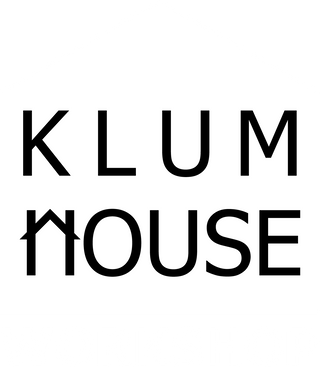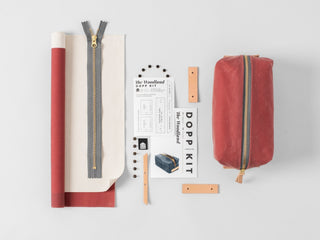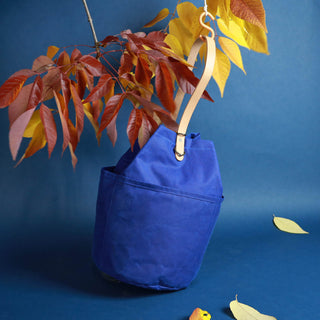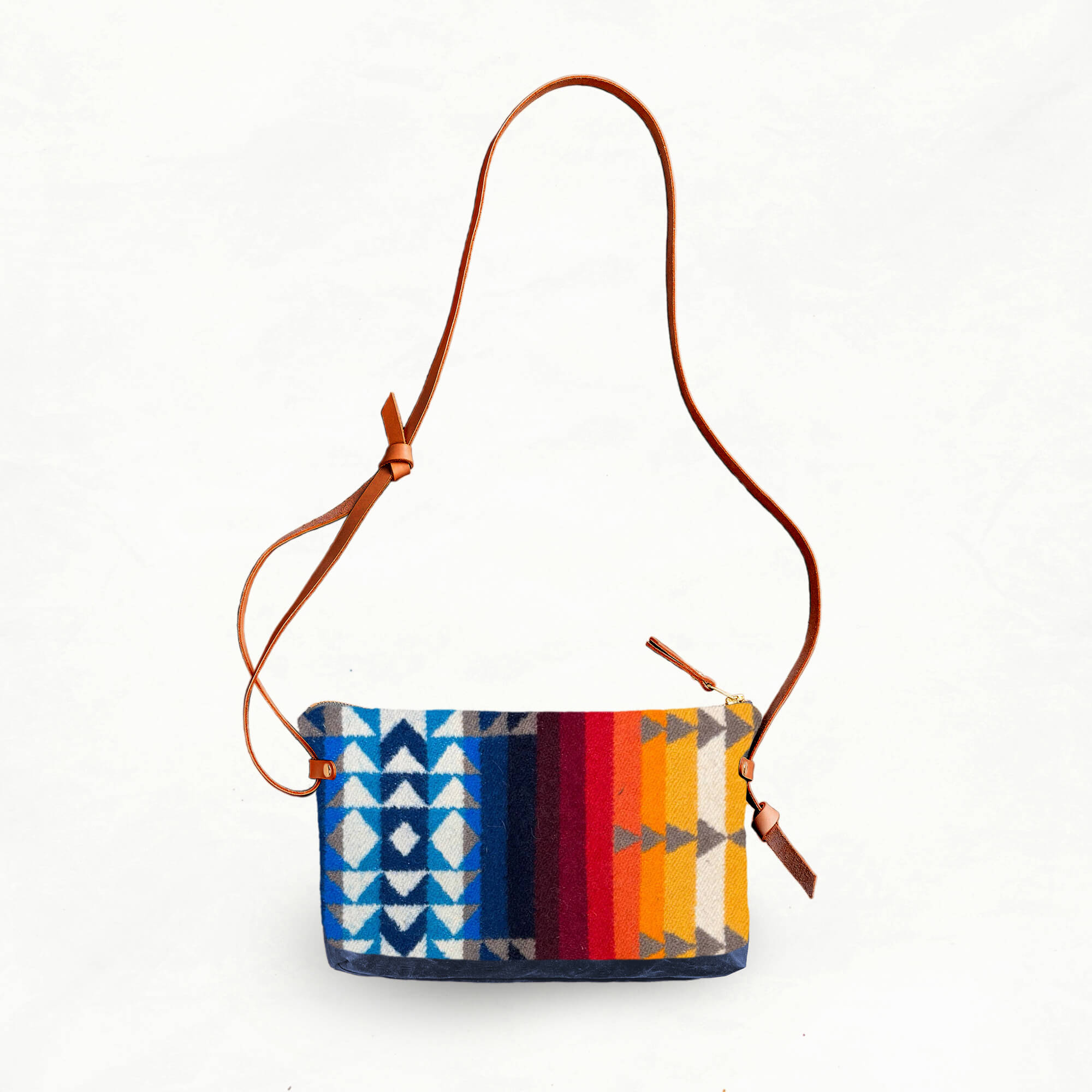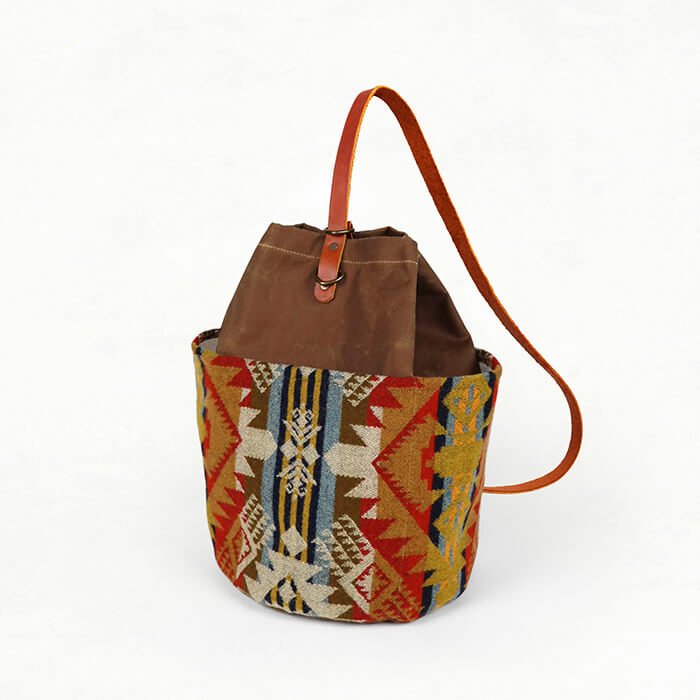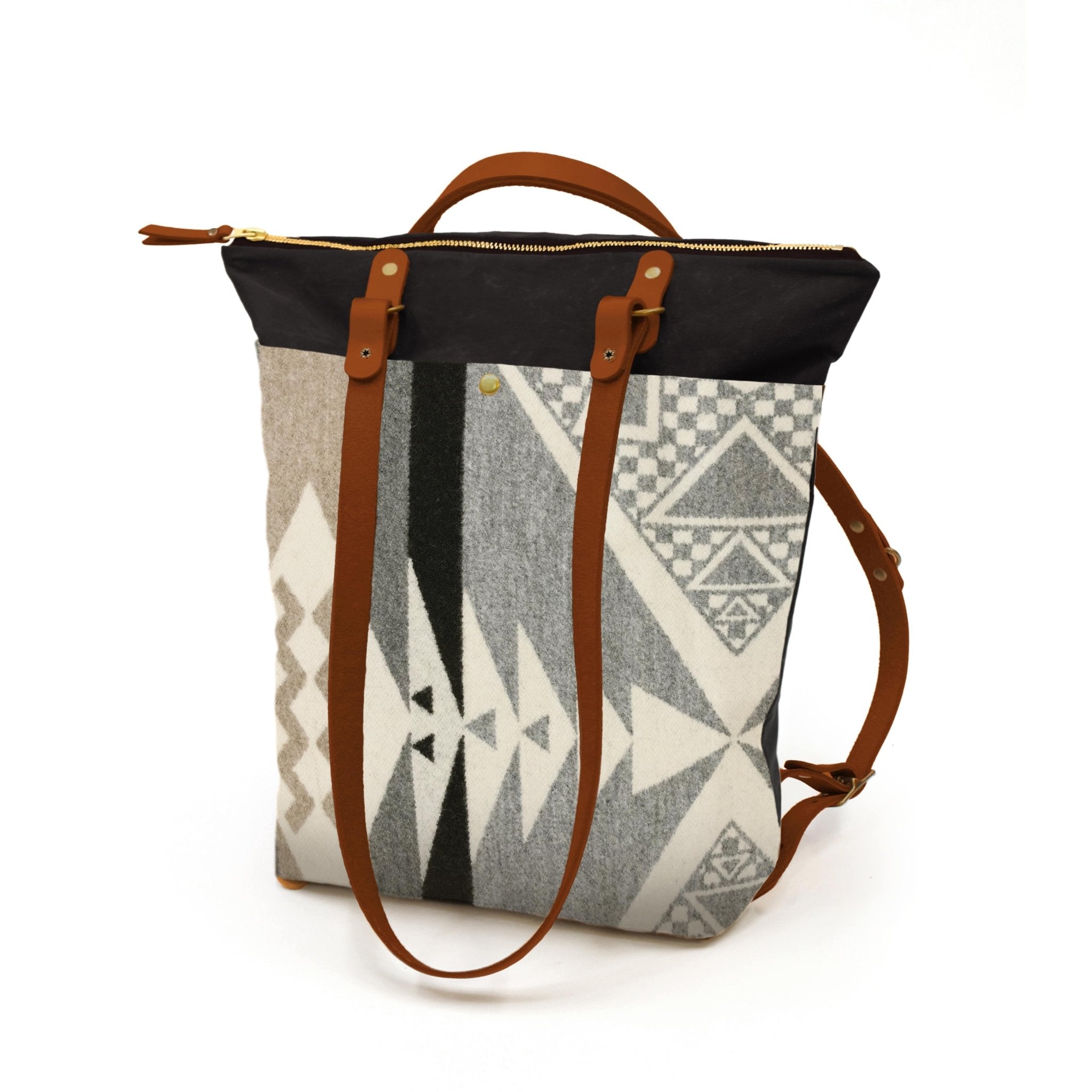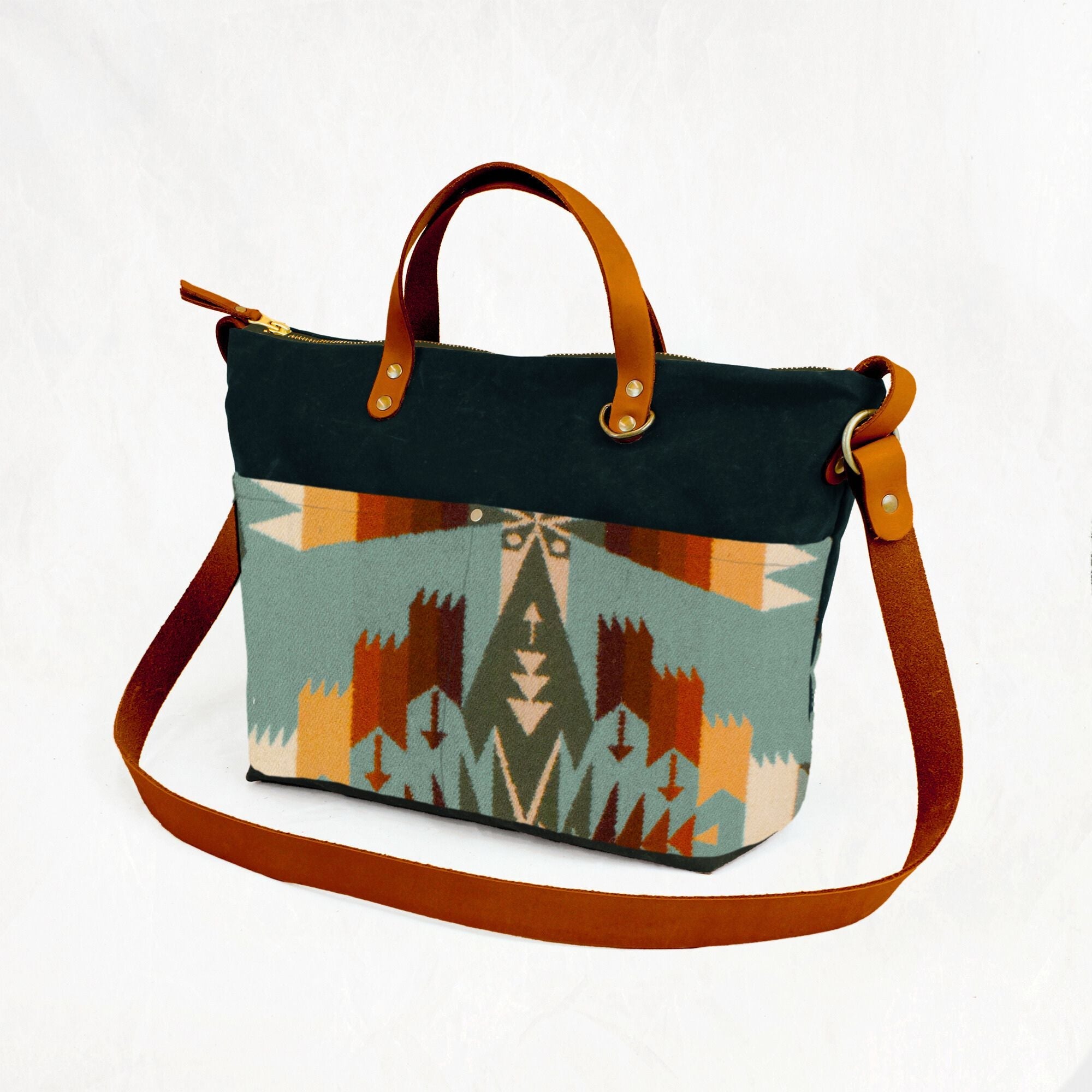In this video, Ellie goes over her top tips and tricks for bag making with Pendleton® wool. We are so excited to offer Limited Edition Maker Kits with Pendleton® Wool! Now you can make your favorite Klum House bags with Pendleton® wool (milled here in Oregon!) for an extra pop of color, pattern, and warmth. Choose from several beautiful color ways to make your own luxurious, professional-quality bag—all on a home sewing machine.Pendleton® Woolen Mills is one of the last remaining fabric mills in the United States
Sewing with Wool
At Klum House, we love teaching makers to work with heavy-duty materials. We’re always looking for ways to adapt industrial sewing techniques for the home sewing machine, so you can make professional-quality bags at home. Pendleton® wool is no exception. You might take one look at a bag made with Pendleton® wool and think “my sewing machine could never do that.” But it can! You can. We’ve designed the pattern and instructions to set you up for success.
In this video, Ellie goes over her top tips and tricks for bag making with Pendleton® wool:
Sewing with wool comes with some special considerations. Unlike waxed canvas, Pendleton® wool has a lot of stretch and movement, which can make it tricky to sew. It’s also quite thick and adds an extra layer of bulk to hems and side seams. But don’t worry! We’ve come up with some special techniques to help you manage these potential set backs. The main techniques are as follows: stabilize with fusible woven interfacing, finish raw edges with a zigzag stitch, and add pocket extension fabric.
About Pendleton®
Pendleton® Woolen Mills is one of the last remaining fabric mills in the United States—and it happens to be located right here in our home state of Oregon. In a time when nearly all fabric production has moved overseas to take advantage of cheap labor and lax environmental-protection laws, Pendleton® Woolen Mills is still in operation, just as it was back in 1863. We love to be able to support local, domestic manufacturing whenever possible, and Pendleton® is a great opportunity to do just that.
Pendleton® is best known for its woolen blankets, which often feature colorful, geometric patterns inspired by Native American designs. Their blankets were originally designed for and sold to Native communities, who have used them for ceremonial gift-giving ever since. Pendleton® wool is soft, light weight, and made from 100% pure virgin wool. Over the last 150 years, Pendleton® has become an icon of American textile manufacturing, as well as the beautiful landscape of the Pacific Northwest.
A Complicated History
In the spirit of integrity, transparency, and conscious consumerism, we would be amiss not to acknowledge that Pendleton®’s historic relationship with Native communities is complicated, as is, of course, the history of our country itself. Back in the mid nineteenth century, Pendleton® marketed its wares to Native peoples, producing blankets with motifs inspired by Native design. The blankets were readily embraced and have become an integral part of Native culture and ceremony.
In our research, we have found that the opinions of Native folks and activists on the subject of Pendleton® are not cut and dry. A few are outspoken against Pendleton® but more often the underlying theme seems to be: it’s complicated. Yes, white colonialists created a business that profited off of Native designs, but they also produced blankets that were embraced and beloved in Native communities, adopted as part of ceremonial gift-giving to this day.
As Americans, capitalism, colonialism, and oppression are embedded in our everyday reality. All non-native people in this country are living on stolen land. Historically, Pendleton® Woolen Mills can be seen as a symbiotic relationship, cultural appropriation, or, more likely, a mixed up combination of the two—a sometimes messy interweaving of cultures and economic systems.
Today, Pendleton® works directly with Native American designers to create special collections, pays for the rights to Native patterns, commissions Native artists for new designs, and has several philanthropic partnerships with Native organizations. If you’d like to learn more, we encourage you to do your own research and click here to read a statement from Pendleton®.

